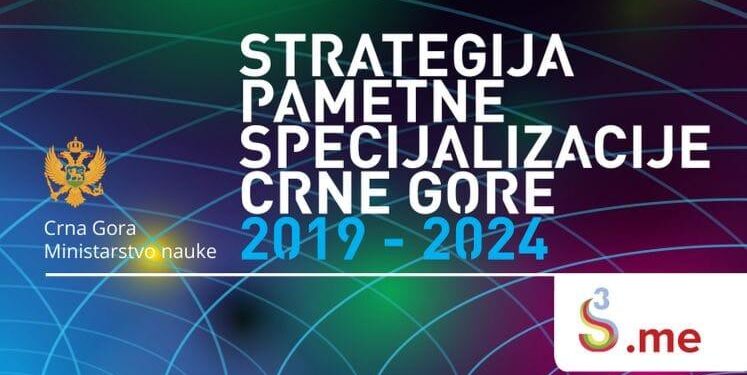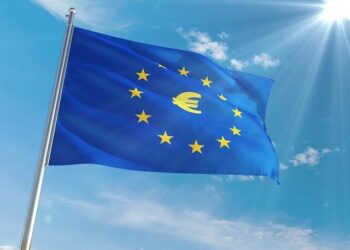Meeting with Minister of Education Anđela Jakšić-Stojanović to Discuss Current and Future Co-operation with Montenegro
In a key diplomatic engagement, Minister of Education AnÄ‘ela Jakšić-Stojanović met with representatives from the Council of Europe to deliberate on ongoing and prospective collaboration initiatives with Montenegro. The discussions centered on strengthening educational reforms, promoting human rights in education, and enhancing youth participation across the country. This meeting underscores a shared commitment to advancing Montenegro’s educational landscape through sustained international partnership.
Meeting with Minister of Education Anđela Jakšić-Stojanović Focuses on Strengthening Educational Ties with Montenegro
During a productive meeting, Minister of Education Anđela Jakšić-Stojanović emphasized the importance of expanding educational cooperation between the Council of Europe and Montenegro. The discussion highlighted ongoing projects aimed at promoting inclusive education, curriculum modernization, and digital learning initiatives tailored to meet the needs of a diverse student population. Key priorities also included strengthening teacher training programs and enhancing intercultural dialogue across educational institutions in Montenegro.
The dialogue paved the way for a strategic action plan, with focus areas outlined as follows:
- Enhanced student mobility through exchange programs and scholarships
- Joint research initiatives on educational policy and innovation
- Collaborative workshops to support educators in adapting to emerging pedagogical challenges
| Focus Area | Short-term Goals | Long-term Impact |
|---|---|---|
| Inclusive Education | Implement pilot programs in selected schools | Greater access for marginalized groups |
| Digital Learning | Upgrade infrastructure & teacher training | Increased digital literacy nationwide |
| Teacher Development | Regional workshops & certification schemes | Enhanced teaching quality and retention |
Detailed Insights into Collaborative Projects Enhancing Teacher Training and Curriculum Development
During the recent high-level discussions, key advancements in teacher training frameworks and curriculum innovation have been emphasized as central pillars for bolstering Montenegro’s educational landscape. The collaboration focuses extensively on co-developing tailored professional development programs designed to meet the evolving needs of educators in the region. These initiatives incorporate cutting-edge pedagogical strategies, digital literacy, and inclusive education principles to ensure teachers are well-equipped to foster inclusive and dynamic learning environments.
The partnership also prioritizes the continuous refinement of curricula, taking into account both national educational standards and European quality benchmarks. Outlined below are the primary areas of focus driving this collaboration:
- Integration of competency-based learning models
- Enhanced teacher exchange and mentoring programs
- Development of adaptive assessment tools for diverse learners
- Promotion of multilingual and multicultural education content
| Project Component | Expected Outcomes | Timeline |
|---|---|---|
| Teacher Training Workshops | Improved pedagogical skills & digital fluency | Q3 2024 |
| Curriculum Review Panels | Modernized, inclusive curriculum framework | Q4 2024 |
| Student-Centered Assessment Tools | Personalized learning paths | Q1 2025 |
Recommendations for Expanding Digital Learning and Promoting Inclusive Education Across Montenegro
To effectively broaden digital learning horizons in Montenegro, the dialogue emphasized the urgent need for robust infrastructure development coupled with teacher capacity-building initiatives. Prioritizing equitable access to high-speed internet and modern devices in underserved regions emerged as a foundational step toward bridging the digital divide. Furthermore, embedding flexible, adaptive learning platforms into the national curriculum was identified as a way to foster personalized education pathways for diverse learners.
The meeting also underscored practical strategies for enhancing inclusivity within the education system. These include:
- Developing tailored support programs for students with disabilities
- Implementing teacher training focused on inclusive pedagogies and digital tools
- Establishing partnerships with civil society to engage marginalized communities
- Leveraging multilingual digital resources to overcome language barriers
To visualize ongoing priorities, the following overview table highlights target areas and expected outcomes:
| Focus Area | Key Actions | Expected Impact |
|---|---|---|
| Digital Infrastructure | Expand broadband connectivity nationwide | Universal access to digital learning tools |
| Teacher Training | Conduct workshops on e-pedagogy and inclusivity | Enhanced teaching quality and learner engagement |
| Key Takeaways The meeting with Minister of Education AnÄ‘ela Jakšić-Stojanović underscored a shared commitment to strengthening educational ties and advancing collaborative initiatives between the Council of Europe and Montenegro. Both sides expressed optimism about the potential for future projects aimed at enhancing educational standards and fostering inclusive, innovative learning environments. As discussions conclude, stakeholders look forward to continued dialogue and concrete actions that will support Montenegro’s educational development in the years ahead. ADVERTISEMENT |
















